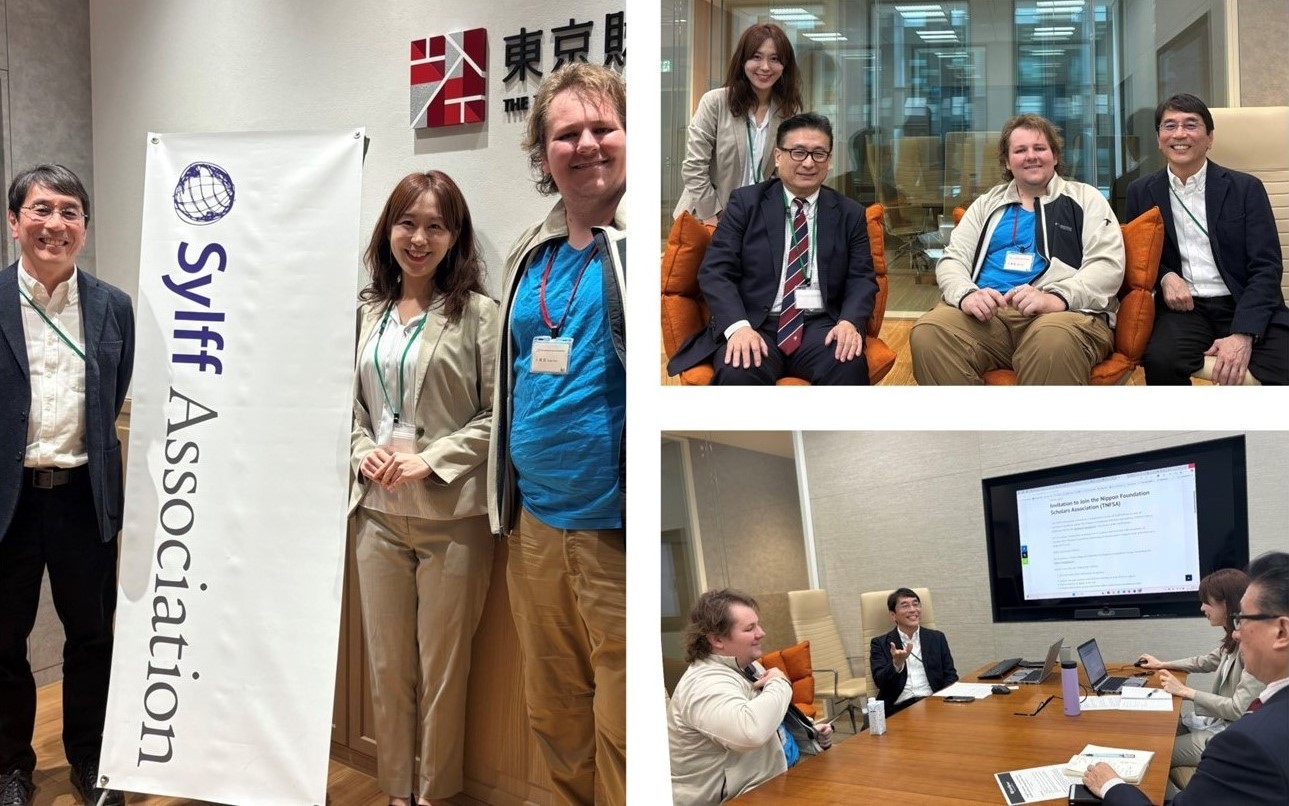Sylff News
Apr 17, 2025
Sylff@Tokyo: UC San Diego Fellow Committed to Advancing Economic Betterment for All
The Sylff Association secretariat was delighted to welcome Justin Lesniak (University of California, San Diego, 2017–19) to the Tokyo Foundation’s office on April 9 during the final leg of his two-month trip to several Asian countries.
He had just completed a four-year tenure as a research analyst at the International Monetary Fund, where he supported the Fund’s engagement with Honduras and El Salvador and ensured the data integrity of country statistics for the World Economic Outlook database.
It was during his childhood in Los Angeles that Lesniak first developed an interest in international development. “We started learning about US history in fifth grade and were taught about how great the US was,” he recalls. “But I wondered why other countries, including smaller ones, can’t be great like the US? This question stuck with me, and I wanted to understand how the economy works and how politics could be made better to help people. It’s all connected.”
Spending six months in Chile as an exchange student during his undergraduate years deepened his interest in Latin America. “The country is like a poster child for free-market economics,” he explains. “After Pinochet seized power in a military coup in 1973, the country implemented free-market policies with the help of US economists from the University of Chicago.
“They privatized everything, and growth took off,” he added, “but this created inequality and other political problems. The dictatorship also persecuted its political opponents, leading to mass disappearances. But what’s fascinating is that in the end, Pinochet stepped down as president in 1990 after losing a democratic election. Usually, this never happens in a dictatorship.”
Lesniak worked as a consultant for the World Bank in the Office of the Chief Economist for Latin America and the Caribbean before earning a master of international affairs in 2019 at UC San Diego’s School of Global Policy and Strategy. And although he had hoped to work for the US government following his time at the IMF, those prospects are now diminished due to recent cuts to federal personnel under the current US administration.
 “I had an interview with USAID just two days before the decision to shut down operations there,” he says. “Now, I’m glad things didn’t work out because it would’ve been like ‘you’re hired’ one minute and ‘you’re fired’ the next. After the presidential election in November, I thought this might be a good time to travel, since the job market might not be that good in DC, and that turned out to be correct.
“I had an interview with USAID just two days before the decision to shut down operations there,” he says. “Now, I’m glad things didn’t work out because it would’ve been like ‘you’re hired’ one minute and ‘you’re fired’ the next. After the presidential election in November, I thought this might be a good time to travel, since the job market might not be that good in DC, and that turned out to be correct.
“So, I’m really happy to be here,” he said in looking back on his first visit to Asia that also took him to Taiwan, Vietnam, Cambodia, and Thailand. “I’ve been visiting friends, and it’s been really eye-opening because there are so many differences from one country to the next. But I’m still thinking about what comes next. I might go back to international development or maybe do more fieldwork and something on the ground.”
As he contemplates his career options, will he consider returning to academia? “Probably not. I’ve debated doing a PhD in economics, but I guess I’m more interested in ‘real work’ with tangible impact, rather than just working with theoretical models.”
At the moment, he is thinking of exploring how climate change may alter seasonal trading patterns and affect what can be produced where. “After all,” he smiles, “I’d like to keep drinking coffee!”